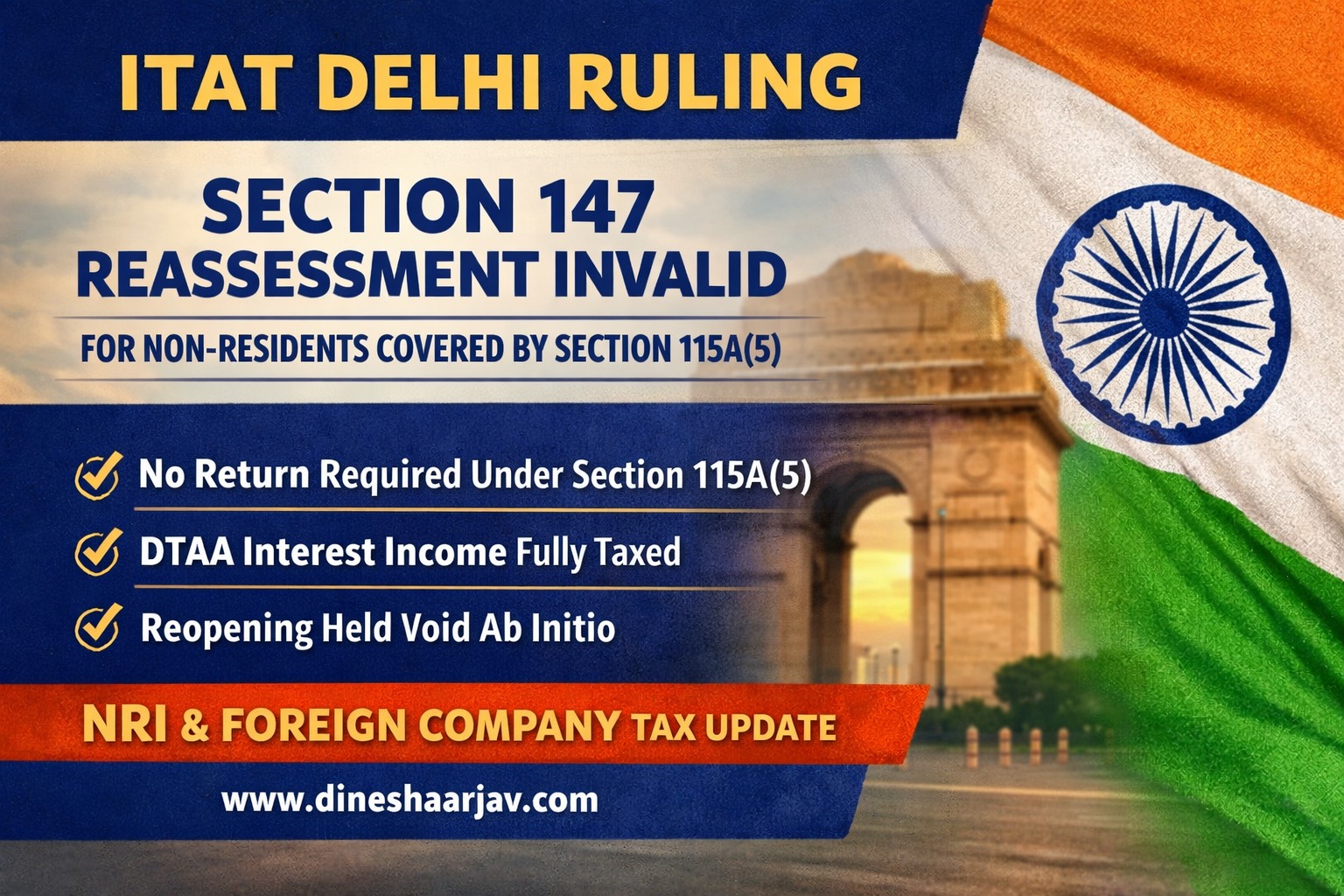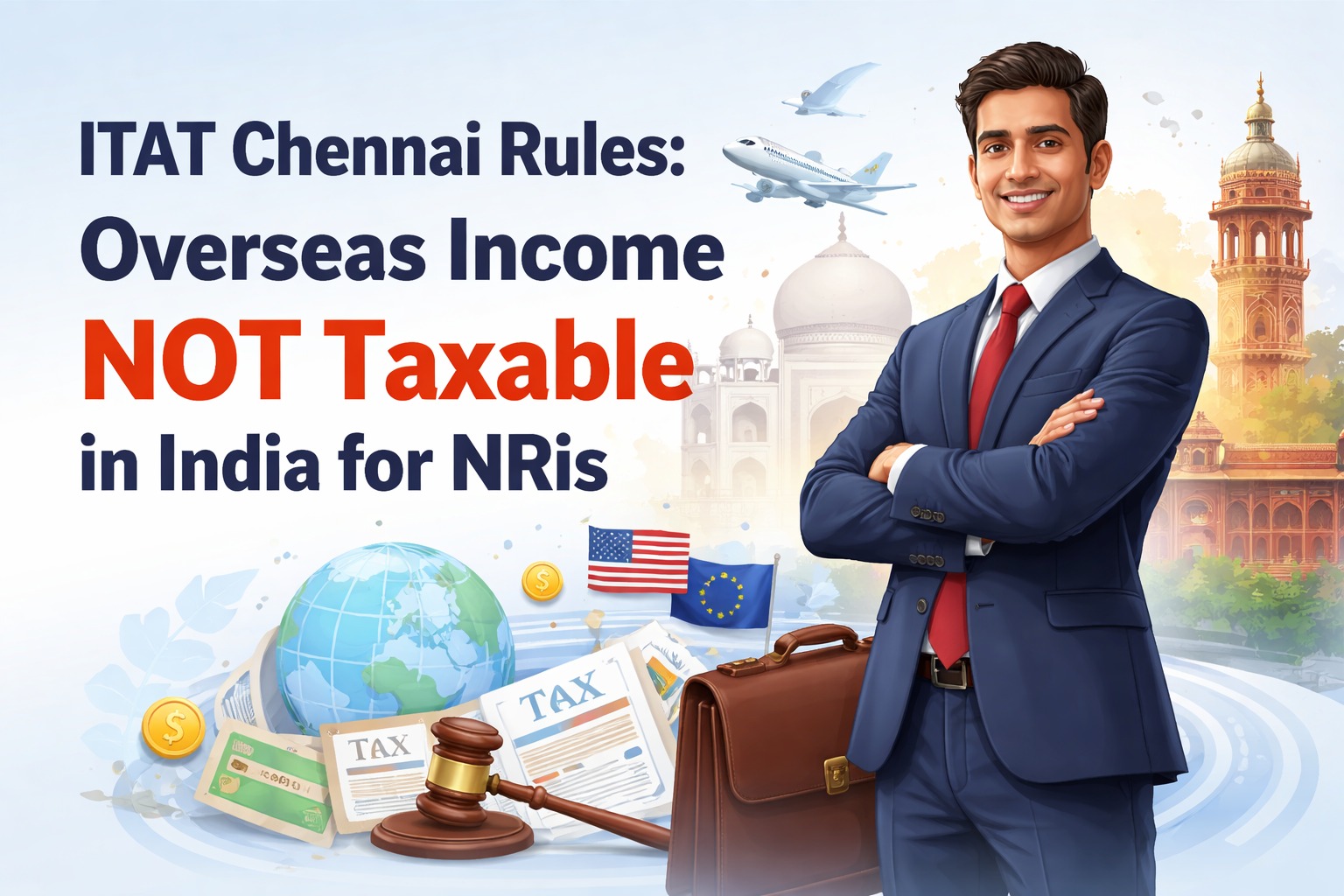 WhatsApp
WhatsApp
 Call Us
Call Us
 Email Us
Email Us
 Whatsapp Community
Whatsapp Community

In a significant development, the Income Tax Appellate Tribunal (ITAT) has delivered a game-changing verdict, offering respite to individuals earning salaries abroad while working outside India. The recent ruling by the ITAT, Delhi bench, has clarified that income earned by a 'non-resident' for services rendered overseas, including salary and allowances, cannot be taxed in India.
Devi Dayal, deputed by an Indian digital technology company to work on a project in Austria, found himself at the center of this landmark ruling. Despite his salary and compensatory allowance being disbursed overseas by the Indian company, tax authorities sought to tax his overseas income in India.
The ITAT's ruling dismantled this notion, affirming that income earned by non-residents for services performed outside India should not fall under the purview of Indian taxation laws. In this case, the tribunal emphasized that Dayal's salary income, inclusive of allowances, was rightfully exempt from taxation in India.
Contrary to popular belief, tax residency is not determined solely by one's country of origin but also by the number of days spent in India. Residents are subject to global taxation, while non-residents are only taxed on income arising within India's borders.
Despite such favorable rulings, challenges from tax authorities, especially at lower levels, may arise regarding exemptions for salaries earned outside India. Common reasons for such disputes include the non-furnishing of Tax Residency Certificates (TRCs) or proof of taxes paid in the host country.
While TRCs are crucial for non-resident taxpayers seeking exemptions under a tax treaty, it's essential to note that in cases like Dayal's, where exemptions weren't sought under a tax treaty, TRC submission wasn't obligatory.
The ITAT's decision serves as a benchmark ruling, reinforcing the principle that income earned by non-residents for services rendered outside India should remain untaxed in the country. This verdict not only provides clarity but also sets a precedent for similar cases in the future, offering much-needed relief to non-resident overseas earners.







Stay in the loop, subscribe to our newsletter and unlock a world of exclusive updates, insights, and offers delivered straight to your inbox.